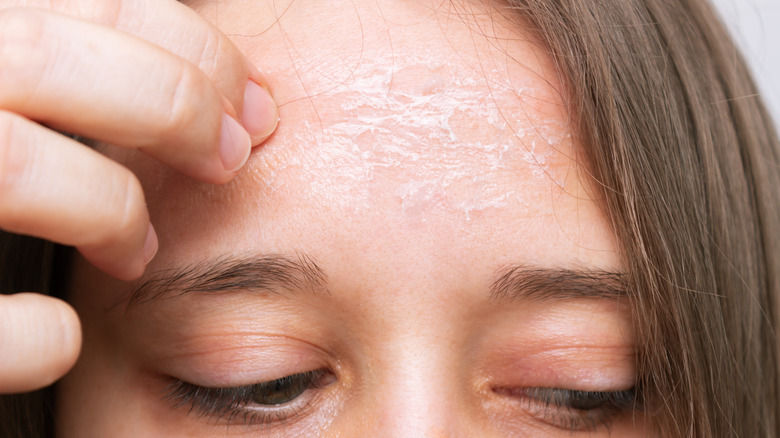Cold Weather and Your Skin Barrier: How to Prevent Dryness and Flaking
- MedWords Editorial

- Aug 20, 2025
- 3 min read

When the temperature drops, our skin often takes the hit first. Dryness, tightness, flaking, and irritation become all too familiar. If you’ve ever wondered why your skincare routine that worked perfectly in summer suddenly feels useless in winter, the answer lies in your skin barrier. Understanding how cold weather impacts this protective layer, and how to care for it, can make the difference between dull, flaky skin and a healthy, radiant glow all winter long.
What Exactly Is the Skin Barrier?
Think of your skin barrier as a wall made up of skin cells (the “bricks”) held together by natural oils and lipids (the “mortar”). Its job is to keep the good stuff, like hydration, locked in, while keeping irritants, pollutants, and bacteria out.
When this barrier is healthy, your skin feels smooth and plump. But when it’s damaged or weakened, it becomes leaky, leading to dehydration, sensitivity, and visible issues like flaking or redness.
Why Cold Weather Damages Your Skin Barrier
Winter is particularly harsh on the skin barrier, and here’s why:
• Low humidity: Cold air holds less moisture, which means your skin loses hydration faster.
• Indoor heating: Central heating dries the air even more, stripping your skin of its natural oils.
• Hot showers: As tempting as they are in winter, hot water breaks down your skin’s protective oils.
• Wind exposure: Wind physically stresses the barrier, making it easier for moisture to escape.
The result? A compromised skin barrier that struggles to hold onto hydration, leaving you with tightness, dryness, and those pesky flakes.
Signs Your Skin Barrier Needs Extra Care
Not sure if your barrier is in trouble? Look for these common signs:
• Persistent dryness and flaking
• Redness or irritation
• Tight, uncomfortable feeling after cleansing
• Sudden sensitivity to products you normally tolerate
If these sound familiar, it’s time to winter-proof your skincare routine.
How to Protect Your Skin Barrier in Cold Weather
1. Switch to a Gentle Cleanser
Foaming or harsh cleansers can strip natural oils, worsening dryness. Opt for a creamy, hydrating cleanser that cleans without over-drying.
2. Layer Hydration the Smart Way
Use a hydrating toner or essence with ingredients like hyaluronic acid or glycerin to pull water into the skin. Follow with a rich moisturizer to seal it in.
3. Embrace Barrier-Repair Moisturizers
Look for moisturizers with ceramides, fatty acids, and cholesterol, the same components your skin barrier is made of. These help rebuild and strengthen the protective layer.
4. Add Occlusives at Night
If your skin feels extra dry, finish your nighttime routine with an occlusive layer, like petroleum jelly or a balm, to lock in moisture.
5. Don’t Skip Sunscreen
Yes, even in winter! UV rays still damage your skin barrier and contribute to dryness and aging. Go for a hydrating sunscreen to get double benefits.
6. Watch the Water Temperature
Hot showers feel heavenly but can worsen barrier damage. Stick to lukewarm water and limit your shower time.
7. Use a Humidifier Indoors
Since heating dries the air, a humidifier adds much-needed moisture back into your environment, and your skin will thank you.
Lifestyle Habits That Help
Skincare products aren’t the whole story. Your lifestyle plays a big role in keeping your barrier healthy:
• Stay hydrated: Drink enough water, but also eat water-rich foods like fruits and soups.
• Healthy fats: Omega-3-rich foods like nuts, seeds, and salmon help reinforce your skin barrier from the inside.
• Sleep and stress: Poor sleep and high stress can weaken skin repair processes, making dryness worse.
The Bottom Line
Cold weather doesn’t have to mean dull, flaky skin. By understanding the role of your skin barrier and making simple adjustments, like richer moisturizers, gentler cleansing, and lifestyle tweaks, you can protect your skin from winter’s harsh effects. Instead of battling dryness, you’ll be supporting your skin’s natural defenses, leaving it soft, hydrated, and glowing even on the coldest days.



Comments